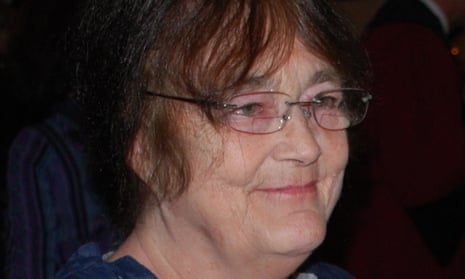The anthropologist Jane Hubert, who has died aged 84, broke down academic barriers and championed the causes of people marginalised by mainstream society. In Britain, they included those institutionalised on various medical pretexts, and abroad she was committed to the rights of indigenous peoples.
As head of the resource centre of the Australian Institute of Aboriginal Studies (now the Australian Institute of Aboriginal and Torres Strait Islander Studies) in the 1970s, Jane grappled with the complex issues of ownership and access to the thousands of tapes, cassettes, photographs and films documenting aspects of Indigenous Australian culture. Much of this had been collected without permission and with little regard for the rights or beliefs of the Indigenous Australian communities.
She played a key, though largely unsung, role in the establishment of the World Archeological Congress (WAC) in 1986, which saw indigenous communities and developing countries become participants in, and not just subjects of, such conferences.
Jane’s other major contribution to world archaeology was to highlight the treatment of human remains and the broader repatriation issue, in books she co-edited, Sacred Sites, Sacred Places (1994) and The Dead and Their Possessions (2002).
Born in Chelsea, London, Jane was the youngest of three daughters of William de Bargue Hubert, a psychiatrist, and his wife, Ruth (nee Kindersley), both of whom died while Jane was a teenager. She went to Horsham high school for girls, in West Sussex, then St Anne’s College, Oxford, where in 1957 she graduated in psychology and philosophy. The following year she gained a diploma in anthropology.
In 1960 she joined a study on East End families at the London School of Economics, and met Anthony Forge, a fellow anthropologist on the project. They married in 1965 and, with their children, Tom and Olivia, spent a year living with an indigenous community in Bali.
In 1974 Anthony became professor of anthropology at the Australian National University and shortly afterwards Jane joined the Australian Institute of Aboriginal Studies. Their marriage ended in divorce in 1982.
Jane had returned to the UK the previous year and taken up a post with the healthcare evaluation team in community medicine at Southampton University, where her new partner, Peter Ucko, was professor of archaeology.
She brought a unique anthropological perspective to learning disability research, and obtained funding for a study of 20 families who had a child or young adult at home with a profound learning disability and challenging behaviour. A similar study followed with 20 families with a child at home with a severe head injury, leading to her 1995 book Life After Head Injury.
Jane and Peter became involved in the decision to uphold the UN’s academic and cultural boycott of South Africa by banning participants from South Africa and Namibia (then under apartheid South African control) from the meeting of the International Union for Prehistoric and Protohistoric Sciences (UISPP) in 1986, which Peter was organising.
Rather surprisingly, as the UISPP was affiliated to the UN through Unesco, its executive ruled that it was unconstitutional to exclude any scholars, and withdrew the conference. In response, a new organising committee, led by Peter, set up the World Archeological Congress, and invited people from new nations and minority groups. This caused a schism in academic archaeology.
Much of Jane’s work for WAC, such as editing contributions to the early books in its One World Archaeology series, and the mundane administrative tasks associated with a fledgling international organisation, went unacknowledged.
However, while Peter was credited, or attacked, for the ban and the revolution in the study and practice of archaeology, WAC simply would not have happened without her. She provided the insight and understanding of a close academic, political and ethical collaborator. WAC, now the primary international archaeological organisation, is as much Jane’s legacy as Peter’s.
She continued her medically related work at Southampton and confronted common practice in Too Many Drugs, Too Little Care (1992), about the inappropriate use of psychotropic medication to treat people with learning disabilities.
The book was the topic of a BBC Panorama programme in 1992 and prompted one reviewer, Jean O’Hara, in the Psychiatric Bulletin, to comment “read this book, and you will appreciate the magnitude of the problem, and the need for a radical shift in social and professional attitudes”.
In 1993 Jane joined the department of psychiatry of disability at St George’s hospital, Tooting, in south London, where she continued to introduce and supervise ethnographic research methods that were deeply rooted in social justice.
In one of her most significant studies, published in the British Journal of Psychiatry in 2006, Jane investigated the dehumanising effects of institutionalisation and the challenges of de-institutionalisation. She spent more than 350 hours of participant observation in a long-stay hospital ward, which had been home since childhood for men with severe learning disabilities and autism, and later followed their progress in their new community homes.
Jane merged her academic worlds by involving a number of learning disabilities experts in the fourth WAC held in post-apartheid Cape Town in 1999, which resulted in another groundbreaking volume, Madness, Disability and Social Exclusion: The Archaeology and Anthropology of “Difference” (2000).
In retirement, Jane continued to work as an honorary senior lecturer at St George’s, and collated eight of her best publications for a doctoral thesis, The Realities of Life for People with Severe and Profound Disabilities and Mental Health Problems, awarded in 2009 by Maastricht University.
In 2012 she was presented with a lifetime achievement award by WAC.
Peter died in 2007. Jane is survived by Tom and Olivia, her grandchildren, Jess, Toby and Barnaby, and her sister Anna.

Comments (…)
Sign in or create your Guardian account to join the discussion